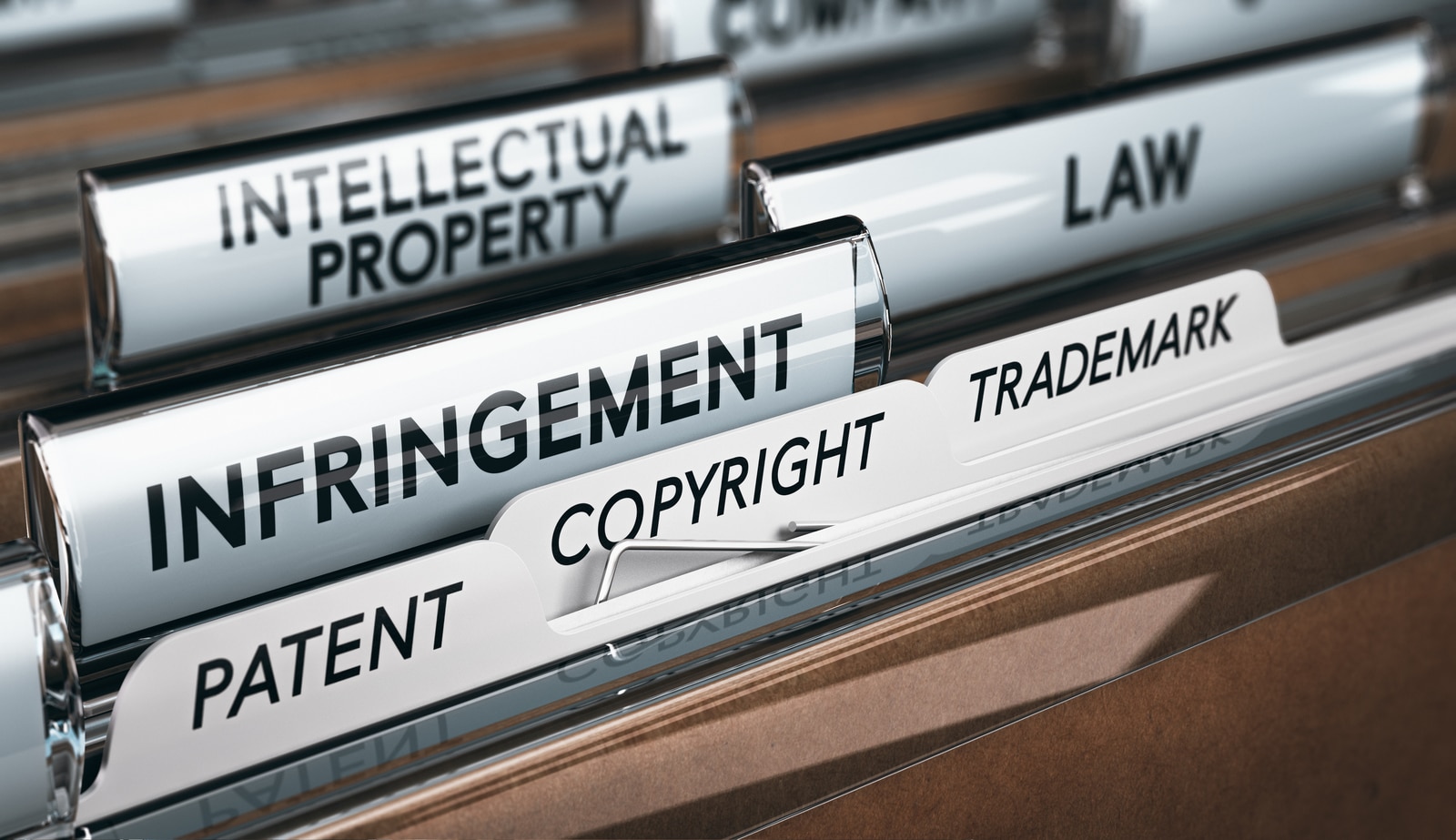Your business is the culmination of countless hours of hard work, innovation, and strategic thinking. It’s a reflection of your vision and the unique value you bring to the market. At the heart of your business is your intellectual property (IP) – the intangible assets that give you a competitive edge. This includes your ideas, inventions, designs, brand names, and creative works. It’s the lifeblood that fuels your growth and success.
What if you’ve poured your heart and soul into developing a groundbreaking product or service. You’ve invested time, money, and energy into bringing your vision to life. But what if someone else steals your idea and claims it as their own? Or perhaps you’re unknowingly using someone else’s intellectual property, putting your business at risk of legal action. These are the kinds of scenarios that can derail even the most promising ventures.
A Health Check for your Business
That’s where an IP audit comes in. It’s like a comprehensive health check for your business, designed to identify, assess, and protect your valuable intellectual assets. By understanding the full scope of your IP, you can make informed decisions about how to maximise its value and minimise risks.
As experienced patent and trade mark attorneys in New Zealand, we have seen firsthand the devastating impact of neglecting intellectual property. Businesses of all sizes can be vulnerable to IP infringement, and the consequences can be far-reaching. From lost revenue and damaged reputation to costly legal battles, the risks are simply too high to ignore.
An IP audit is more than just a compliance exercise. It’s a strategic tool that can help you uncover hidden opportunities, identify potential threats, and build a stronger, more resilient business. By working with qualified patent and trade mark attorneys, you can gain valuable insights into your IP portfolio and develop a robust protection strategy.
Are you ready to take control of your intellectual property?
New Zealand’s Unique IP Environment
First of all, you need to understand that the business environment in Aotearoa presents a unique landscape for IP. While sharing many similarities with other developed economies, several factors distinguish it:
A Strong Emphasis on Innovation and Creativity
New Zealand has a culture that fosters innovation and creativity. This emphasis on originality is reflected in the nation’s IP laws and policies. Businesses are encouraged to protect and commercialise their intellectual assets.
The Role of Māori Intellectual Property
Māori intellectual property is a significant aspect of the New Zealand IP landscape. The country has a strong commitment to recognising and protecting Māori cultural heritage and traditional knowledge. This unique focus on indigenous IP rights adds a layer of complexity and cultural sensitivity to IP matters.
A Relatively Small Market
New Zealand’s relatively small domestic market often drives businesses to look overseas for growth opportunities. This can impact IP strategy as businesses need to consider international protection and enforcement.
Government Support for Innovation
The New Zealand government actively supports innovation and entrepreneurship. This includes initiatives to promote IP protection, commercialisation, and research and development. Government support can be a valuable resource for businesses seeking to protect and leverage their intellectual property.
Strong IP Protection Framework
Aotearoa has a robust IP protection framework aligned with international standards. This provides a solid foundation for businesses to build their IP strategies. However, understanding the specific nuances of New Zealand IP law is essential for effective protection.
These factors combined create a distinctive IP environment in Aotearoa. Businesses operating in this context need to be aware of these unique characteristics to effectively protect and maximise the value of their intellectual property.
Understanding IP Audits
What is an IP Audit?
An IP audit is a thorough examination of a business’ IP assets. It’s like taking stock of your most valuable business possessions. This includes identifying what IP you own, understanding its value, and assessing how well it’s protected. It’s about creating a clear picture of your intellectual property landscape.
Purpose of an IP Audit
The primary goal of an IP audit is to identify potential risks and opportunities related to your intellectual property. It helps you understand the strength of your IP portfolio and how it aligns with your business objectives. An audit can also uncover hidden value in your IP assets and help you develop strategies to protect and monetise them.
Benefits of Conducting an IP Audit
There are many advantages to conducting an IP audit:
- Identifying valuable assets: An audit can help you discover IP assets you may not have known about.
- Protecting your business: By identifying potential vulnerabilities, you can take steps to protect your IP from infringement.
- Mitigating risks: An audit can help you identify potential legal issues and develop strategies to address them.
- Enhancing your IP portfolio: By understanding the value of your IP, you can make informed decisions about how to invest in and strengthen your portfolio.
- Supporting business decisions: IP information can be crucial for making strategic decisions, such as licensing, selling, or partnering.
- Improving efficiency: A well-organised IP portfolio can streamline operations and reduce costs.
A Tech Startup Case Study
For instance, let’s consider a New Zealand tech startup that has developed a revolutionary new app. The founders are excited about the potential of their product but are unsure about the strength of their IP protection. An IP audit reveals that while they have registered a trade mark for their app name, they haven’t filed for a patent on the underlying technology. This information allows the startup to take steps to protect their invention and explore potential licensing opportunities.
By conducting an IP audit, the startup can make informed decisions about how to protect and commercialise their intellectual property, increasing their chances of success.

The IP Audit Process
Identifying IP Assets
The first step in an IP audit is to identify all your business’ intellectual property. This involves looking at both tangible and intangible assets.
- Tangible assets are physical items like products, designs, or prototypes.
- Intangible assets are the ideas and creative works that underpin your business.
Once you’ve identified your assets, it’s important to categorise them into specific IP types:
- Patents protect inventions and new processes.
- Trade marks protect brand names, logos, and slogans.
- Copyrights protect original literary, artistic, dramatic, and musical works.
- Trade secrets are confidential information that gives your business a competitive edge.
Assessing IP Value
Not all IP is created equal. Some assets will be more valuable to your business than others. Determining the commercial value of your IP is crucial for making informed decisions. Factors to consider include:
- Revenue generation: How much money does the IP directly or indirectly generate?
- Cost savings: Does the IP reduce operational costs or improve efficiency?
- Competitive advantage: How does the IP differentiate your business from competitors?
- Market potential: Is there a large market for the IP or its applications?
Identifying your key IP assets is essential. These are the assets that provide the most significant value to your business and require the strongest protection.
IP Portfolio Analysis
Once you’ve identified and valued your IP assets, it’s time to analyse your overall IP portfolio. This involves:
- Evaluating the strength of your IP: Are your patents, trade marks, and copyrights strong and enforceable?
- Assessing the scope of your IP protection: Does your IP cover all relevant aspects of your business?
- Identifying gaps in your IP protection: Are there areas where your business is vulnerable to IP infringement?
- Recognising overlaps in your IP protection: Are there any instances of duplicate or redundant IP protection?
By analysing your IP portfolio, you can identify areas where you need to strengthen your protection and eliminate unnecessary costs.
Identifying IP Risks
A key part of an IP audit is assessing potential risks to your intellectual property. This involves:
- Identifying potential IP infringement: Are there competitors or other businesses that might be infringing on your IP?
- Recognising vulnerabilities in your IP protection: Are there weaknesses in your IP protection that could expose you to risks? For example, are your trade secrets adequately protected?
- Developing mitigation strategies: Once you’ve identified potential risks, you can develop strategies to mitigate them. This might involve strengthening your IP protection, monitoring for infringement, or developing contingency plans.
Understanding the potential risks to your IP is essential for protecting your business and minimising losses.
The Role of Patent and Trade Mark Attorneys in IP Audits
Patent and trade mark attorneys are indispensable allies when undertaking an IP audit. Their specialised knowledge and experience provide a comprehensive approach to safeguarding and maximising the value of your intellectual property.
Deep-Rooted Expertise in IP Law
Attorneys possess an in-depth understanding of the intricate legal framework governing intellectual property in New Zealand. This expertise is crucial for accurately identifying, evaluating, and protecting your IP assets. They can navigate complex legal issues, interpret regulations, and apply case law to your specific circumstances.
Mastery of IP Registration and Enforcement
Beyond legal knowledge, patent and trade mark attorneys have practical experience in registering and protecting IP rights. They can guide you through the registration process, ensuring compliance with all necessary formalities and requirements. Moreover, they are well-equipped to handle IP disputes, should the need arise, by enforcing your rights and defending against infringement claims.
Precision in Identifying IP Assets
Uncovering the full spectrum of your intellectual property requires a skilled eye. Patent and trade mark attorneys possess the ability to identify hidden or undervalued IP assets that might otherwise go unnoticed. Their expertise in various IP areas, including patents, trade marks, copyrights, and trade secrets, ensures a comprehensive assessment of your business’s intellectual capital.
Accurate Valuation of Intellectual Property
Determining the true value of your IP assets is essential for making informed business decisions. Attorneys can conduct detailed valuations by analysing market trends, competitive landscapes, and potential revenue streams. Their insights into IP valuation can help you make strategic choices, such as licensing, selling, or investing in your IP.
Optimising Your IP Portfolio
An effective IP portfolio is aligned with your business objectives and provides maximum protection. Patent and trade mark attorneys can analyse your existing IP holdings to identify gaps, overlaps, or weaknesses. By offering strategic guidance, they help you build a robust IP portfolio that supports your business growth and mitigates risks.
Proactive Risk Management
Identifying and mitigating IP risks is paramount for business success. Attorneys can conduct thorough risk assessments, identifying potential vulnerabilities and developing strategies to protect your IP. They can help you implement measures to prevent infringement, such as monitoring the marketplace, registering trade marks, and maintaining confidentiality agreements.
Crafting a Winning IP Strategy
A well-defined IP strategy is essential for achieving your business goals. Patent and trade mark attorneys can collaborate with you to develop a tailored IP strategy that aligns with your overall business objectives. They can provide strategic advice on protecting, exploiting, and monetising your IP assets, helping you maximise their value.
Comprehensive Documentation and Reporting
An IP audit generates a wealth of information. Patent and trade mark attorneys can effectively organise and document the audit findings, producing clear and concise reports. These reports provide a valuable resource for decision-making and can be used to communicate IP information to stakeholders.
By partnering with a skilled patent and trade mark attorney, you can unlock the full potential of your intellectual property and gain a competitive advantage in the marketplace.
Food for Thought – Some Case Studies
To illustrate the value of IP audits and the role of patent and trade mark attorneys, let’s consider a few case studies.
The Food Manufacturer Case
A well-established New Zealand food manufacturer was concerned about competitors potentially copying their popular product line. An IP audit identified several areas where the company’s IP protection was weak, including a lack of trade mark registrations for some product names and insufficient protection for trade secrets related to their unique recipes. By addressing these vulnerabilities, the company was able to strengthen its IP position and deter potential competitors.

The Fashion Designer Case
A New Zealand fashion designer was struggling to protect their original designs from being copied by fast-fashion retailers. An IP audit revealed opportunities to register design patents and copyright their unique patterns and styles. By implementing these measures, the designer was able to safeguard their intellectual property and maintain a competitive edge in the market.
Lessons Learned
These case studies highlight the importance of conducting regular IP audits. By identifying IP assets, assessing their value, and identifying potential risks, businesses can make informed decisions about how to protect and leverage their intellectual property. Engaging a patent and trade mark attorney can provide invaluable expertise and guidance throughout the IP audit process.
It’s crucial to remember that every business is unique, and the specific outcomes of an IP audit will vary. However, the benefits of conducting a thorough IP audit are consistent across industries. By investing in IP protection, businesses can enhance their competitive advantage, mitigate risks, and unlock the full potential of their intellectual assets.
IP Audit Checklist
Providing your patent and trade mark attorney with a well-organised checklist can significantly streamline the IP audit process. Here are some key areas to include in your checklist:
- Business Overview: A brief description of your business, industry, and target market.
- Product or Service Information: Detailed information about your products or services, including any unique features or innovations.
- Existing IP Portfolio: A list of any patents, trade marks, copyrights, or designs you believe you own.
- IP Documentation: Copies of relevant documents such as patent applications, trade mark registrations, copyright notices, and licensing agreements.
- Competitor Analysis: Information on your main competitors and their IP holdings.
- Business Goals and Objectives: A clear outline of your business goals and how you see IP contributing to them.
- Areas of Concern: Specific areas where you suspect IP issues or require additional protection.
By providing this information upfront, you help your attorney focus their efforts and provide more accurate and timely advice.
Resources for Further Information on IP Audits
To gain a deeper understanding of IP audits and their importance, consider exploring these resources:
- Intellectual Property Office of New Zealand (IPONZ): IPONZ offers valuable information and resources on various aspects of intellectual property.
- New Zealand Law Society: The Law Society can provide referrals to patent and trade mark attorneys and access to legal resources.
- Industry Associations: Many industries have specific associations that offer IP-related guidance and support.
- Online Resources: Numerous online articles, blogs, and webinars provide insights into IP audits and best practices.
- Professional Consultants: IP consultants can offer specialised expertise in conducting IP audits and developing IP strategies.
Remember, while online resources can provide valuable information, seeking professional advice from a reputable patent and trade mark attorney is crucial for a comprehensive and effective IP audit.
The Final Word
Your business’ intellectual property is a valuable asset that deserves careful protection. An IP audit is a crucial tool for understanding and safeguarding your IP rights. By identifying your IP assets, assessing their value, and identifying potential risks, you can make informed decisions to protect and grow your business.
Patent and trade mark attorneys are your partners in this process. Their expertise in IP law, registration, and enforcement is invaluable. They can help you uncover hidden opportunities, mitigate risks, and develop a robust IP strategy.
Regular IP audits should be a cornerstone of your business management. By conducting audits on a consistent basis, you can stay ahead of potential issues, maximise the value of your IP, and ensure your business is well-protected for the future. Investing time and resources in an IP audit is an investment in the long-term success of your business. Don’t wait until it’s too late. Take control of your intellectual property today.
